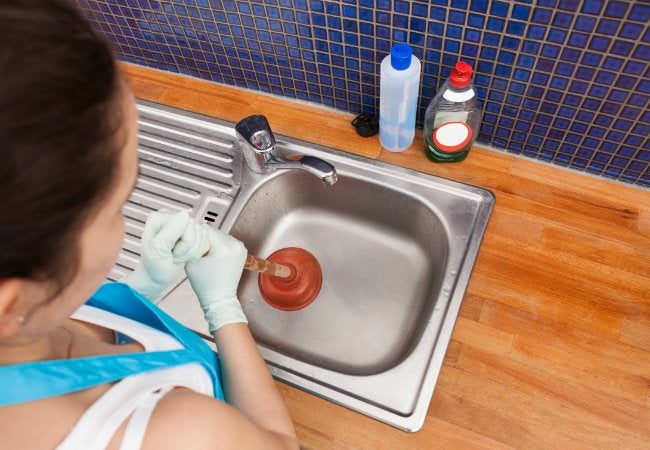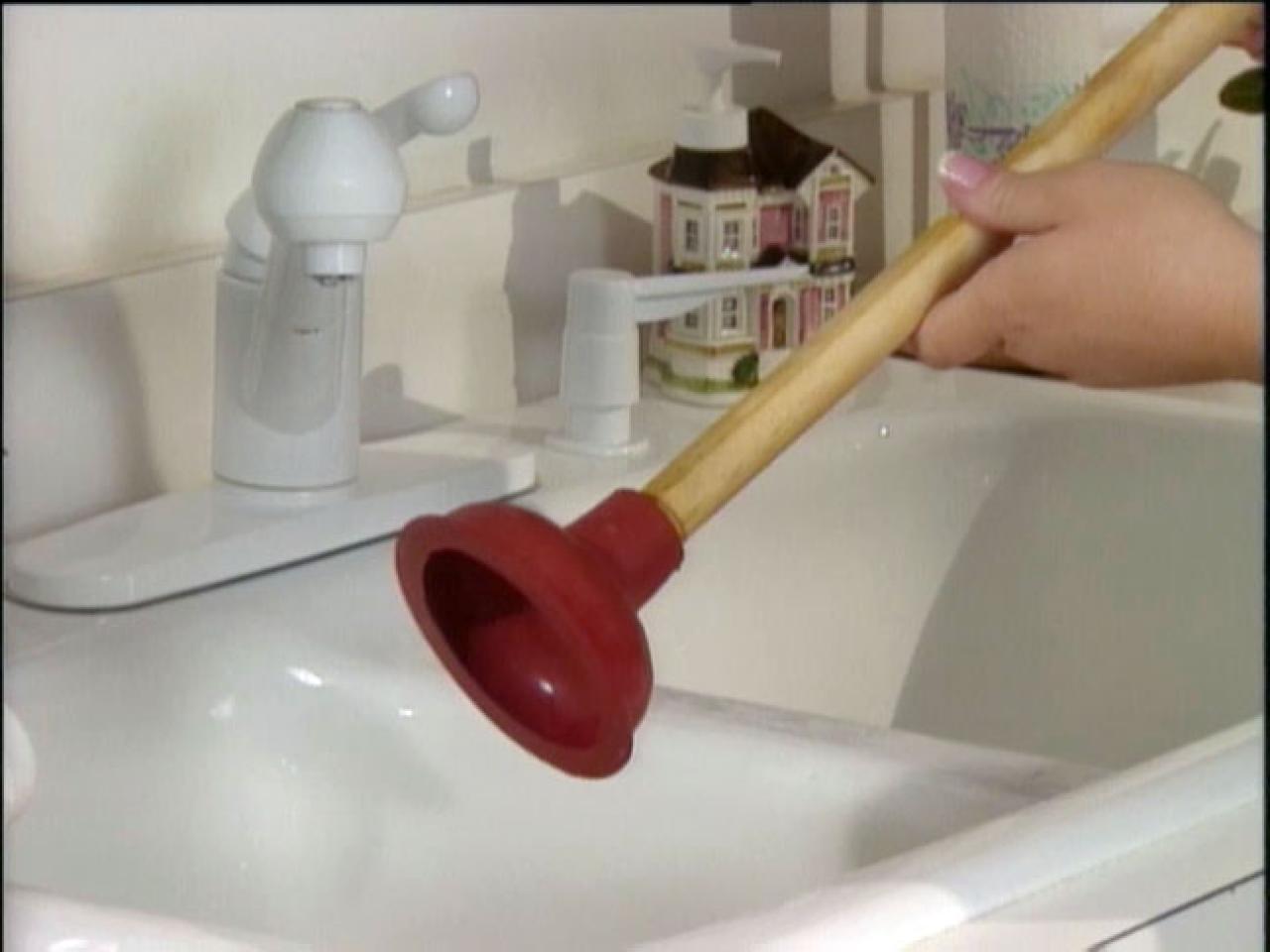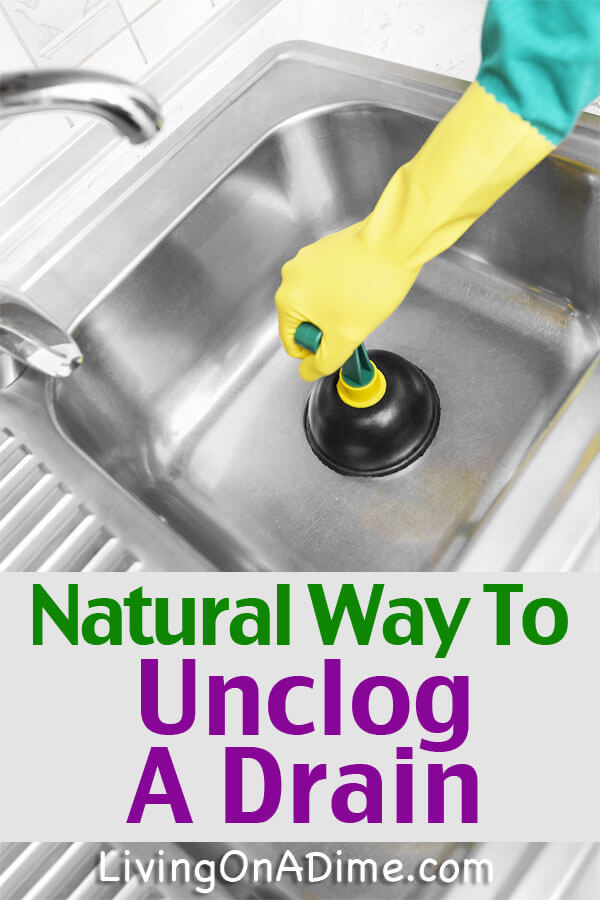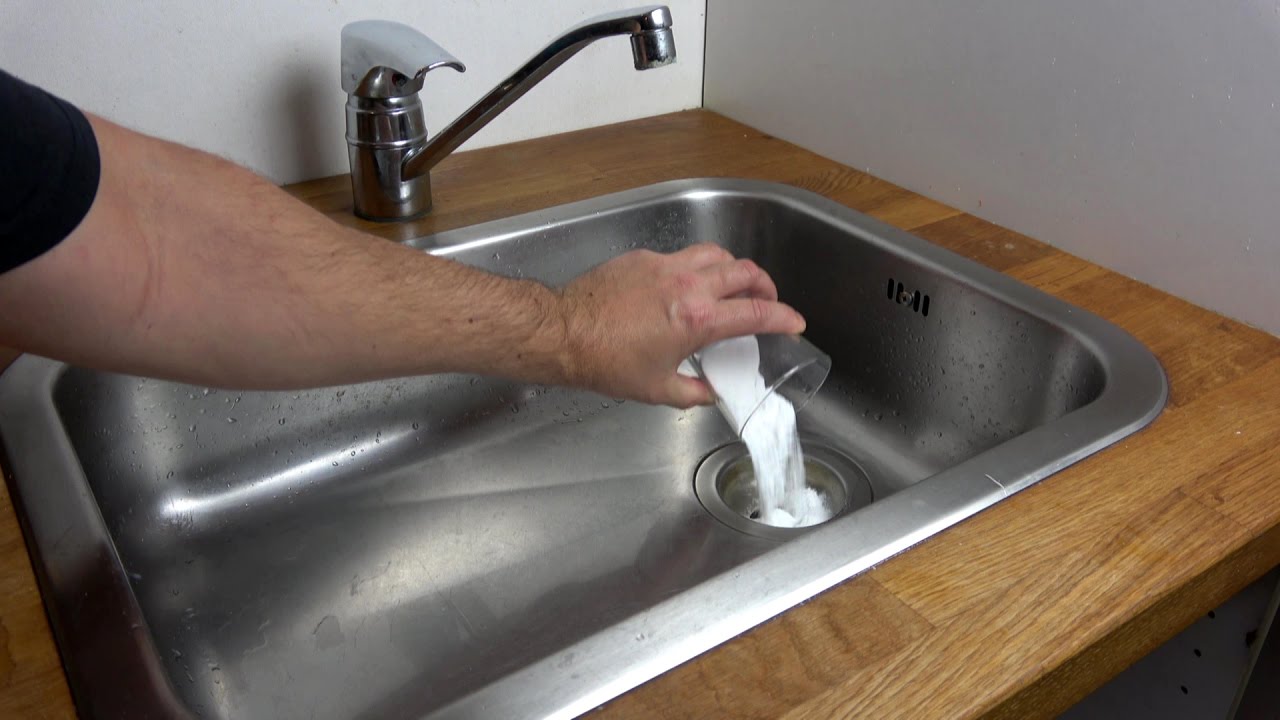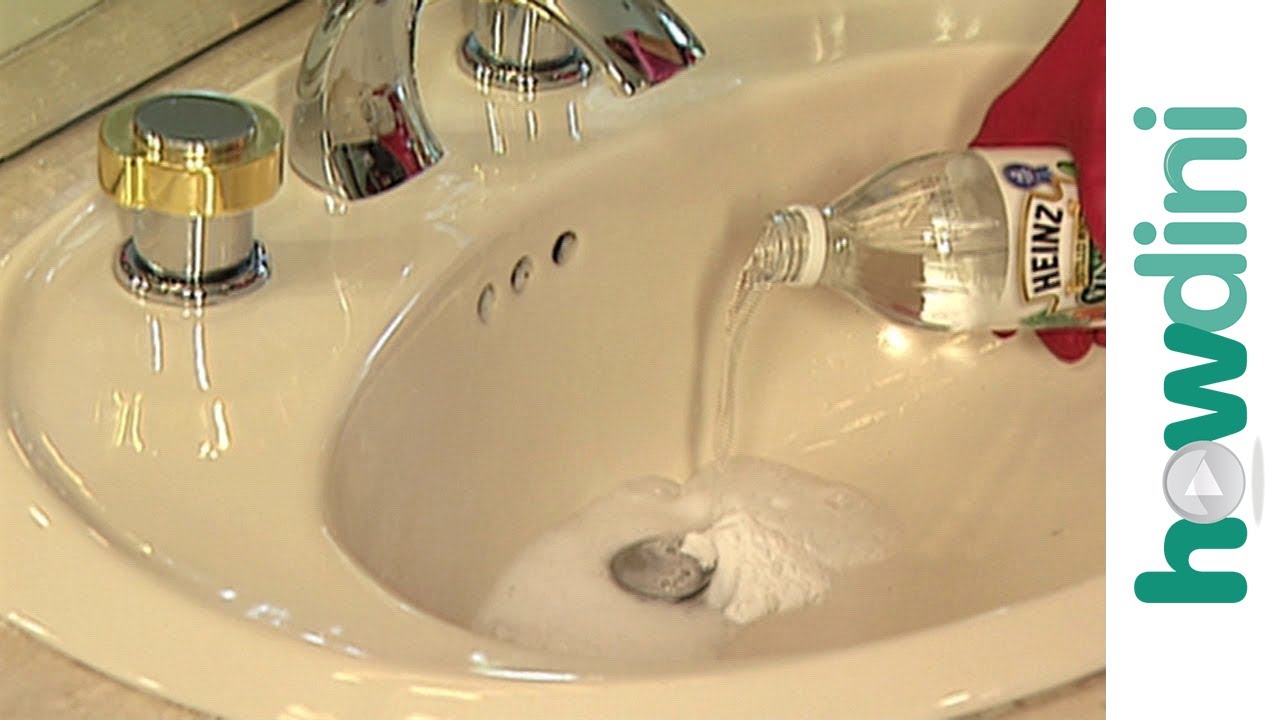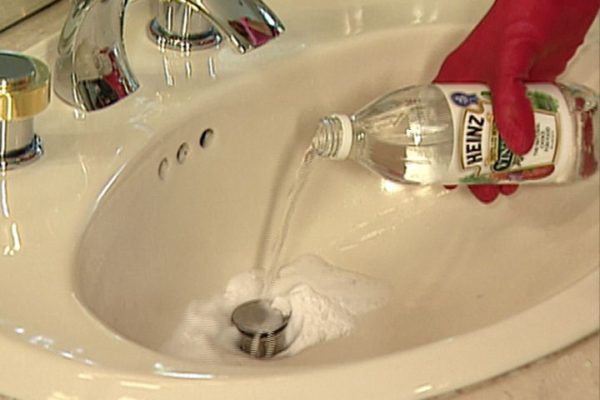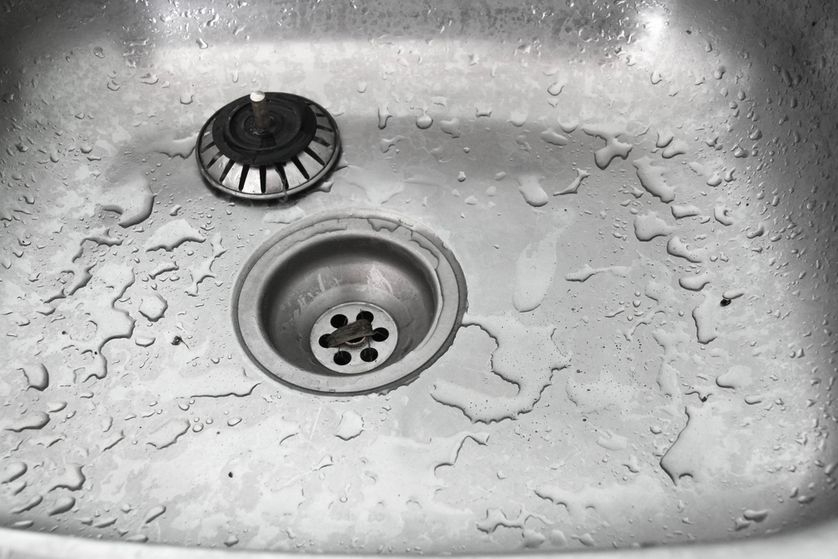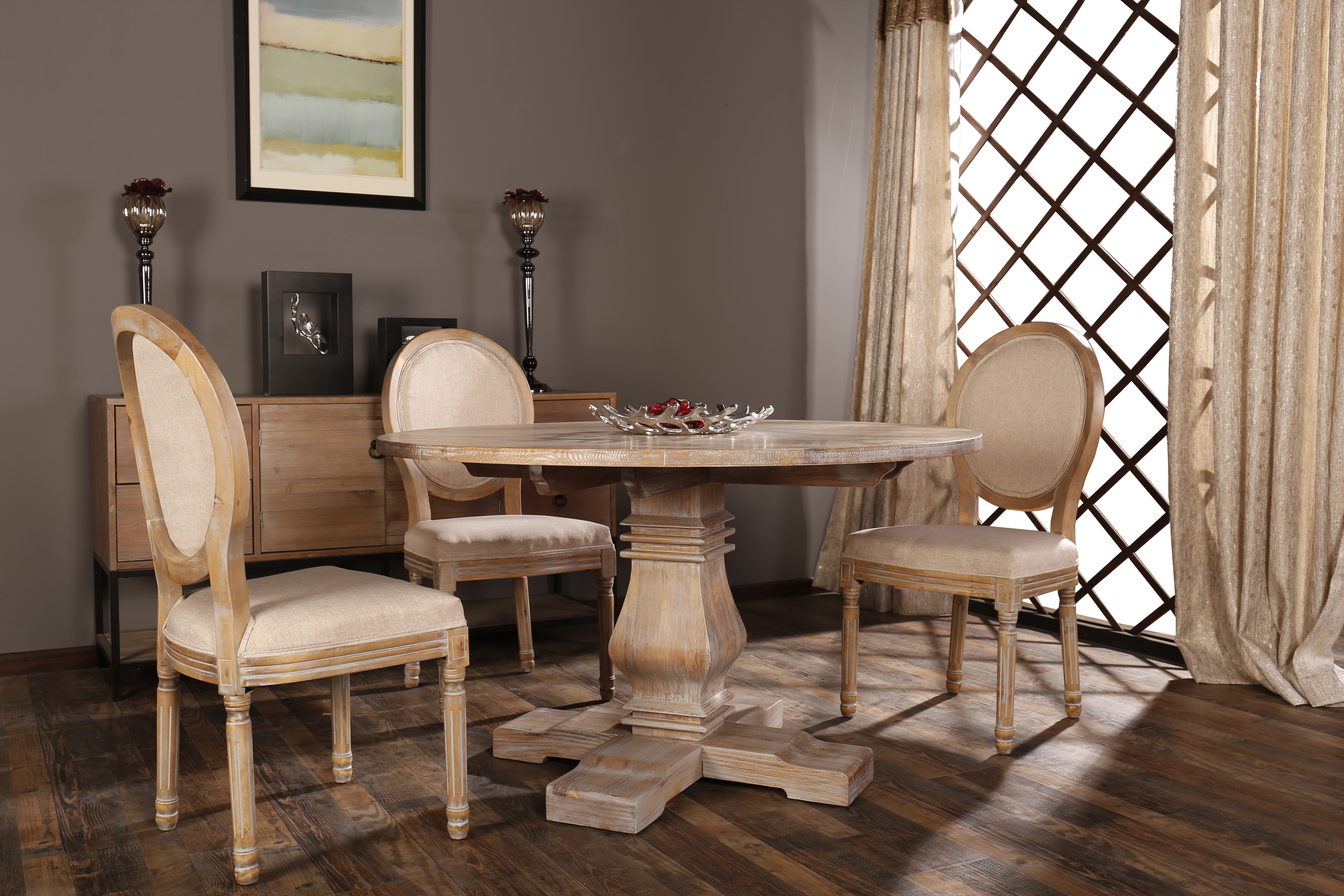Dealing with a slow-draining kitchen sink can be a major inconvenience, especially when you have dishes piling up and a busy schedule to keep up with. But before you call a plumber and spend a fortune, try these simple and cost-effective solutions to unclog your kitchen sink drain.Unclog a Kitchen Sink
There are several ways to fix a slow-draining kitchen sink, and it all depends on the underlying cause. Here are the top 5 methods that you can try to get your sink back to its full draining capacity:How to Fix a Slow-Draining Kitchen Sink
1. Use a Plunger: This is one of the most common and effective methods of unclogging a kitchen sink. Make sure to cover the other drain in a double sink and create a tight seal around the plunger before plunging up and down a few times. 2. Use a Drain Snake: This tool is specifically designed to reach deep into the drain and pull out any trapped debris. Simply insert the snake into the drain and turn it clockwise as you push it through the pipe. 3. Use Hot Water and Dish Soap: This method works best for grease clogs. Pour a pot of boiling water down the drain followed by a cup of dish soap. Let it sit for a few minutes before running hot water to flush it out. 4. Try Baking Soda and Vinegar: This natural mixture can help break down any buildup in the drain. Start by pouring half a cup of baking soda down the drain, followed by half a cup of vinegar. Wait for 10-15 minutes before flushing with hot water. 5. Use a Chemical Drain Cleaner: If all else fails, you can try using a chemical drain cleaner. However, these products can be harsh on your pipes and should be used as a last resort.5 Ways to Unclog a Kitchen Sink Drain
If you have tried the methods above and your kitchen sink is still draining slowly, it's time to get your hands dirty and clear out the clog manually. Here's how: 1. Remove the Sink Trap: Start by placing a bucket or bowl under the sink trap, which is the curved section of pipe under the sink. Use a wrench to loosen the slip nuts and remove the trap. 2. Clean the Trap: Empty out any debris or gunk from the trap and clean it thoroughly. You can also use a pipe cleaner or a small brush to remove any buildup from the inside of the trap. 3. Check the Drain Pipe: Use a flashlight to check the drain pipe for any visible clogs. If you can see the clog, use a wire hanger or a pipe snake to dislodge and remove it. 4. Reassemble the Sink Trap: Once the trap and drain pipe are clear, reassemble the sink trap and run hot water to flush out any remaining debris.How to Clear a Clogged Kitchen Sink Drain
If you're looking for more natural and cost-effective solutions, here are a few DIY fixes you can try: 1. Salt and Baking Soda: Mix equal parts of salt and baking soda and pour it down the drain. Let it sit for a few minutes before flushing with hot water. 2. Boiling Water and Salt: This is another simple and effective method for clearing a clogged drain. Boil a pot of water and add a few tablespoons of salt. Pour it down the drain and let it sit for a few minutes before flushing with hot water. 3. Baking Soda and Lemon Juice: Cut a lemon in half and pour baking soda over it. Squeeze the lemon halves, allowing the juice to mix with the baking soda. Place the lemon halves in the drain and let it sit for 10-15 minutes before flushing with hot water. 4. Vinegar and Salt: Mix equal parts of vinegar and salt and pour it down the drain. Let it sit for a few minutes before flushing with hot water.DIY Fixes for a Slow-Draining Kitchen Sink
This natural and chemical-free method is highly effective in unclogging kitchen sinks. Here's how to do it: 1. Remove any standing water from the sink using a cup or a towel. 2. Pour half a cup of baking soda down the drain. 3. Follow it with half a cup of vinegar. 4. Cover the drain with a cloth or stopper to prevent the mixture from bubbling up. 5. Let it sit for 20-30 minutes. 6. Remove the cloth or stopper and run hot water down the drain to flush out the clog.How to Unclog a Kitchen Sink with Baking Soda and Vinegar
Understanding the common causes of a slow-draining kitchen sink can help you prevent future clogs. Here are some of the most common culprits: 1. Food Scraps: One of the main causes of kitchen sink clogs is the buildup of food scraps. To prevent this, always use a sink strainer to catch any food particles before they go down the drain. 2. Grease and Oil: Pouring grease and oil down the drain may seem convenient, but it can result in major clogs. Make sure to dispose of grease and oil properly, such as in a sealed container or in the trash. 3. Soap Scum: Soap scum and residue from cleaning products can also contribute to a slow-draining kitchen sink. Use natural and non-toxic cleaners to avoid this issue. 4. Foreign Objects: Children's toys, utensils, and other small objects can accidentally fall into the sink and cause a clog. Make sure to keep an eye on what goes down your sink drain.Common Causes of Slow-Draining Kitchen Sinks
Using a plunger is a simple and effective method to unclog a kitchen sink. Here's how to do it: 1. Cover the other drain in a double sink with a cloth or stopper. 2. Run enough water to cover the bottom of the plunger. 3. Place the plunger over the drain and create a tight seal. 4. Plunge up and down for 20-30 seconds. 5. Remove the plunger and run hot water to flush out the clog.How to Use a Plunger to Unclog a Kitchen Sink
If you prefer to use natural and chemical-free methods to unclog your kitchen sink drain, here are a few more options to consider: 1. Boiling Water and Vinegar: Boil a pot of water and add one cup of vinegar. Pour it down the drain and let it sit for a few minutes before flushing with hot water. 2. Baking Soda and Salt: Mix equal parts of baking soda and salt and pour it down the drain. Let it sit for 10-15 minutes before flushing with hot water. 3. Salt and Cream of Tartar: Mix equal parts of salt and cream of tartar and pour it down the drain. Let it sit for 15-20 minutes before flushing with hot water. 4. Boiling Water and Dish Soap: Boil a pot of water and add a few drops of dish soap. Pour it down the drain and let it sit for a few minutes before flushing with hot water.Natural Ways to Unclog a Kitchen Sink Drain
Prevention is key when it comes to avoiding a slow-draining kitchen sink. Here are some simple tips that can help keep your sink clear and clog-free: 1. Use a sink strainer to catch any food scraps and prevent them from going down the drain. 2. Avoid pouring grease and oil down the sink. Instead, dispose of them properly. 3. Run hot water down the drain after each use to help flush out any debris and prevent buildup. 4. Use natural and non-toxic cleaning products to avoid soap scum and residue buildup. 5. Regularly clean the sink trap and drain pipe to prevent any buildup from causing a clog. Don't let a slow-draining kitchen sink disrupt your daily routine. With these simple and effective methods, you can easily unclog your kitchen sink and keep it running smoothly. Whether you prefer natural solutions or trusty old tools like a plunger, these tips and tricks will help you keep your kitchen sink in top shape. Remember to always be cautious when using chemical drain cleaners and consult a professional if you're unsure about the cause of your clog. Happy unclogging!How to Prevent a Slow-Draining Kitchen Sink
Why Your Kitchen Sink Drains Slowly: Common Causes and Solutions
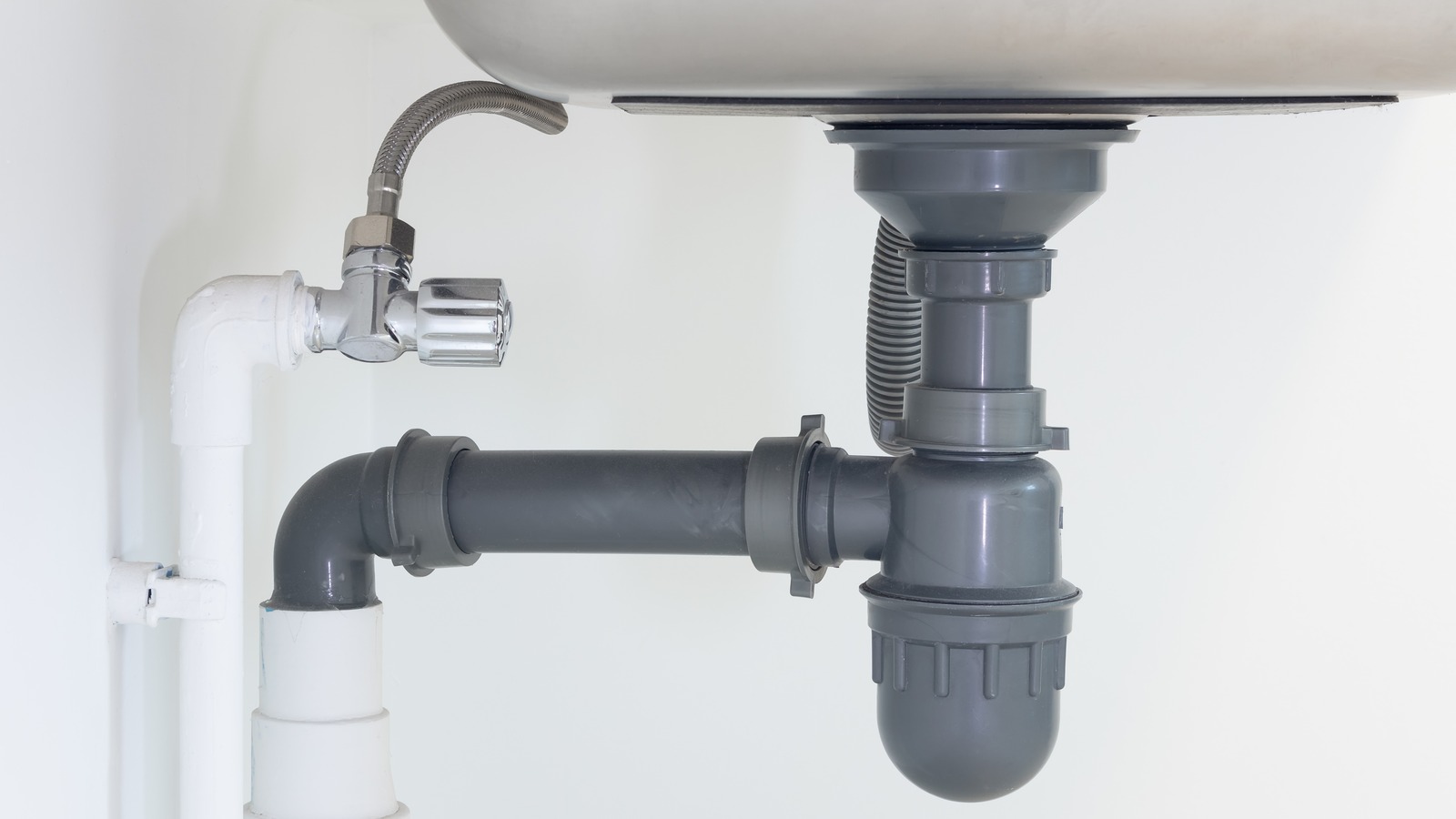
Introduction
 A slow-draining kitchen sink can be a frustrating and inconvenient problem for any homeowner. It can disrupt daily routines and make it difficult to complete basic tasks such as washing dishes or preparing meals. If you're experiencing this issue, don't worry, you're not alone. Slow-draining kitchen sinks are a common household problem that can be caused by a variety of factors. In this article, we'll discuss some of the main causes of a slow-draining kitchen sink and provide some solutions to help you get back to a fully functioning sink.
A slow-draining kitchen sink can be a frustrating and inconvenient problem for any homeowner. It can disrupt daily routines and make it difficult to complete basic tasks such as washing dishes or preparing meals. If you're experiencing this issue, don't worry, you're not alone. Slow-draining kitchen sinks are a common household problem that can be caused by a variety of factors. In this article, we'll discuss some of the main causes of a slow-draining kitchen sink and provide some solutions to help you get back to a fully functioning sink.
Main Causes of a Slow-Draining Kitchen Sink
:max_bytes(150000):strip_icc()/how-to-install-a-sink-drain-2718789-hero-24e898006ed94c9593a2a268b57989a3.jpg) Clogged Drain
Clogged Drain
One of the most common culprits of a slow-draining kitchen sink is a clogged drain. Over time, food particles, grease, and other debris can build up in your drain and create a blockage. This can restrict the flow of water and cause your sink to drain slowly. If you notice that the water in your sink is draining at a sluggish pace, a clogged drain is likely the cause. Improper Garbage Disposal Usage
If your kitchen sink is equipped with a garbage disposal, it's important to use it properly. Many homeowners make the mistake of putting non-food items, such as paper towels or eggshells, down the disposal. This can cause damage to the disposal and lead to a clog in your drain, resulting in a slow-draining sink. Old or Faulty Pipes
Over time, pipes can become corroded, cracked, or damaged, which can impede the flow of water and cause your sink to drain slowly. This is more common in older homes, where pipes may be more susceptible to wear and tear. If your pipes are old or damaged, it may be time to replace them to improve the drainage in your kitchen sink.
Solutions for a Slow-Draining Kitchen Sink
/how-to-install-a-sink-drain-2718789-hero-b5b99f72b5a24bb2ae8364e60539cece.jpg) Use a Plunger
Use a Plunger
If you suspect a clogged drain is the cause of your slow-draining sink, a plunger can be an effective solution. Simply place the plunger over the drain and give it a few forceful plunges to dislodge the blockage. This should improve the flow of water and help your sink drain more quickly. Try a Homemade Drain Cleaner
If plunging doesn't do the trick, you can try making a homemade drain cleaner using ingredients you likely already have in your kitchen. A mixture of baking soda and vinegar can help break down and dissolve any clogs in your drain. Simply pour the baking soda down the drain, followed by the vinegar, and let it sit for about 30 minutes before flushing it with hot water. Call a Professional
If you've tried the above solutions and your kitchen sink still drains slowly, it may be time to call in a professional plumber. They can assess the situation and determine the best course of action to fix the problem. They may also be able to identify any underlying issues, such as old or faulty pipes, that need to be addressed.
Conclusion
 A slow-draining kitchen sink can be a nuisance, but it doesn't have to be a permanent problem. By understanding the common causes and implementing some simple solutions, you can get your sink draining properly again in no time. If all else fails, don't hesitate to call a professional for help. A fully functioning kitchen sink is essential for a functional household, so don't let a slow drain slow you down.
A slow-draining kitchen sink can be a nuisance, but it doesn't have to be a permanent problem. By understanding the common causes and implementing some simple solutions, you can get your sink draining properly again in no time. If all else fails, don't hesitate to call a professional for help. A fully functioning kitchen sink is essential for a functional household, so don't let a slow drain slow you down.
/plumber-unclogging-kitchen-sink-169270382-5797a9355f9b58461f27f024.jpg)





:max_bytes(150000):strip_icc()/how-to-unclog-a-kitchen-sink-2718799_sketch_FINAL-8c5caa805a69493ab22dfb537c72a1b7.png)

















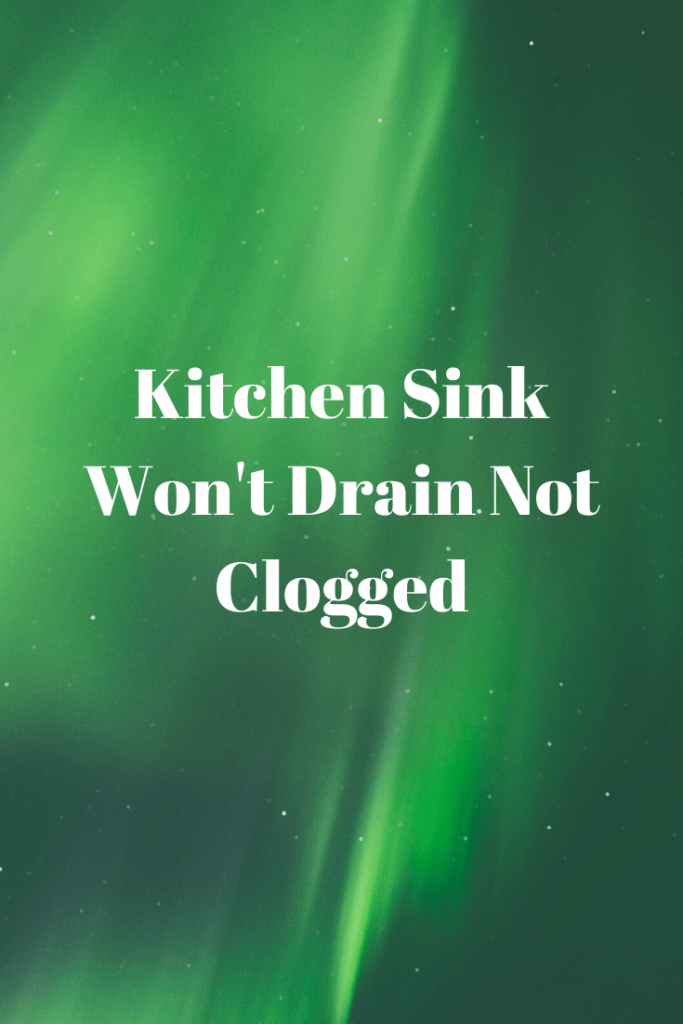




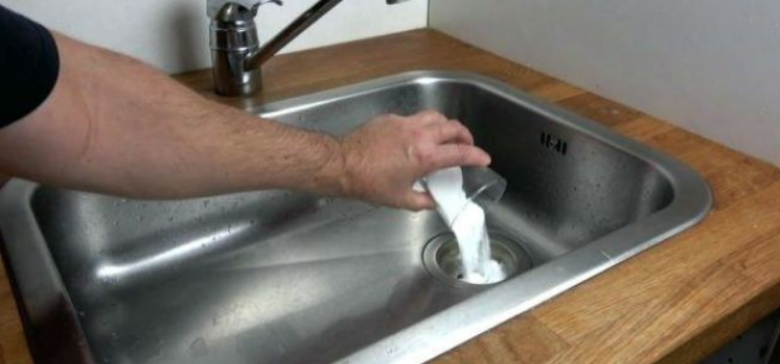
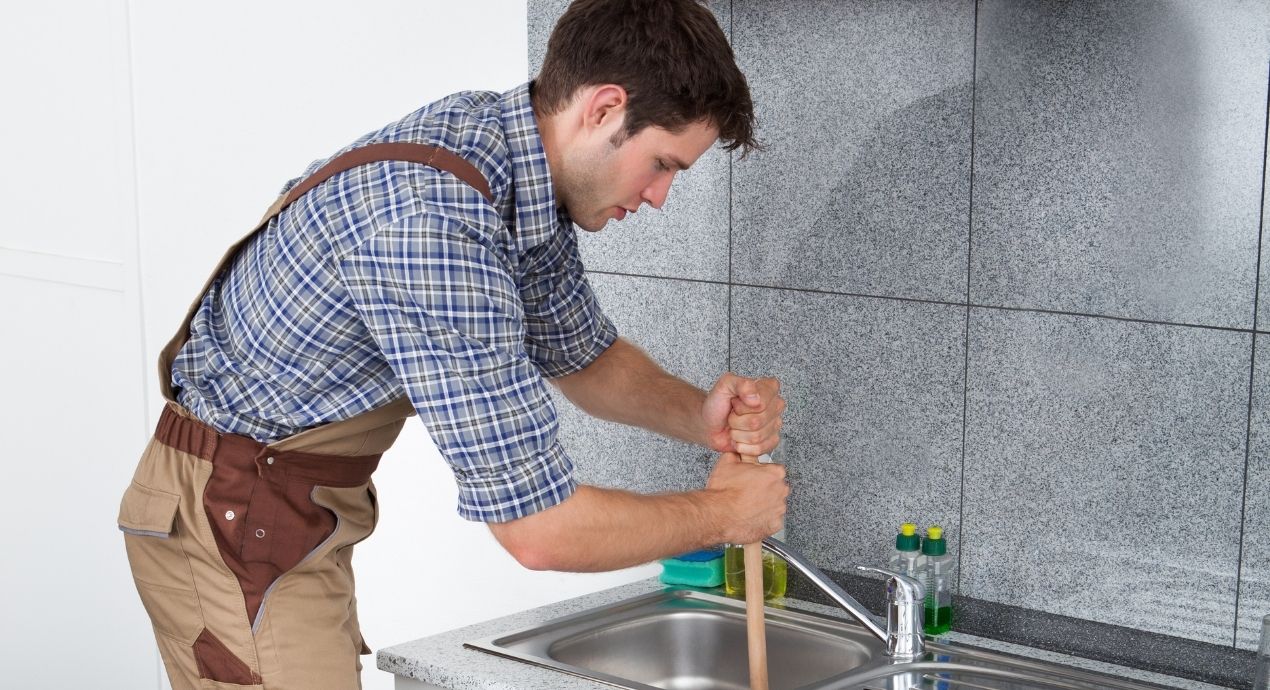







:max_bytes(150000):strip_icc()/freshen-and-unclog-drain-with-baking-soda-1900466-22-bbf940b70afa4d5abef0c54da23b1d3f.jpg)










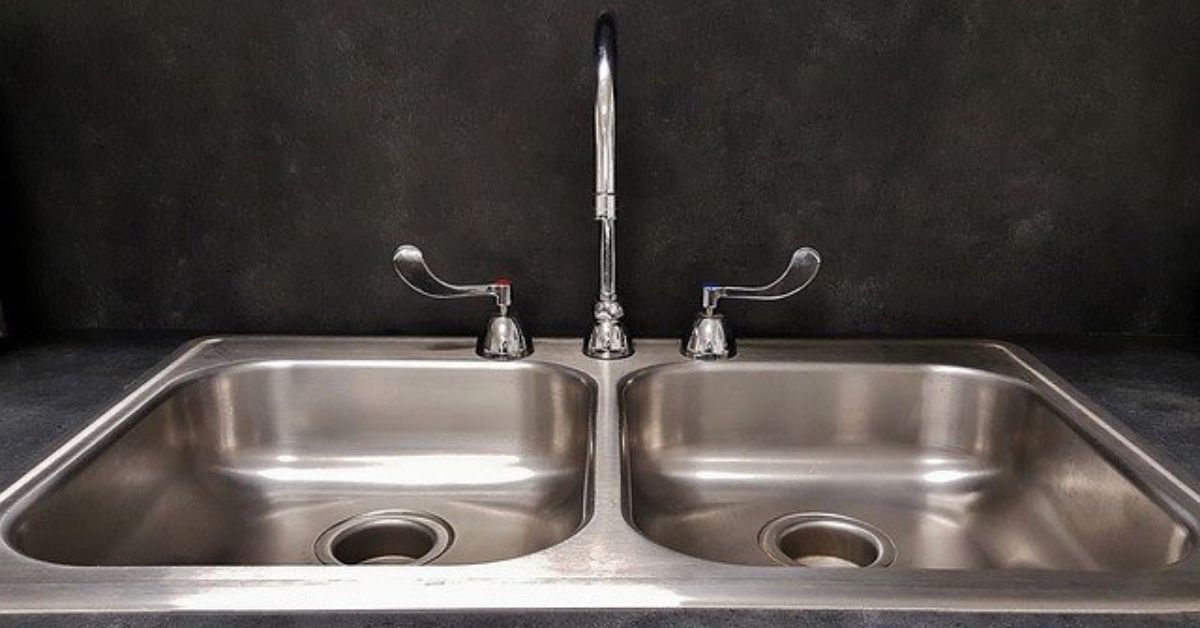


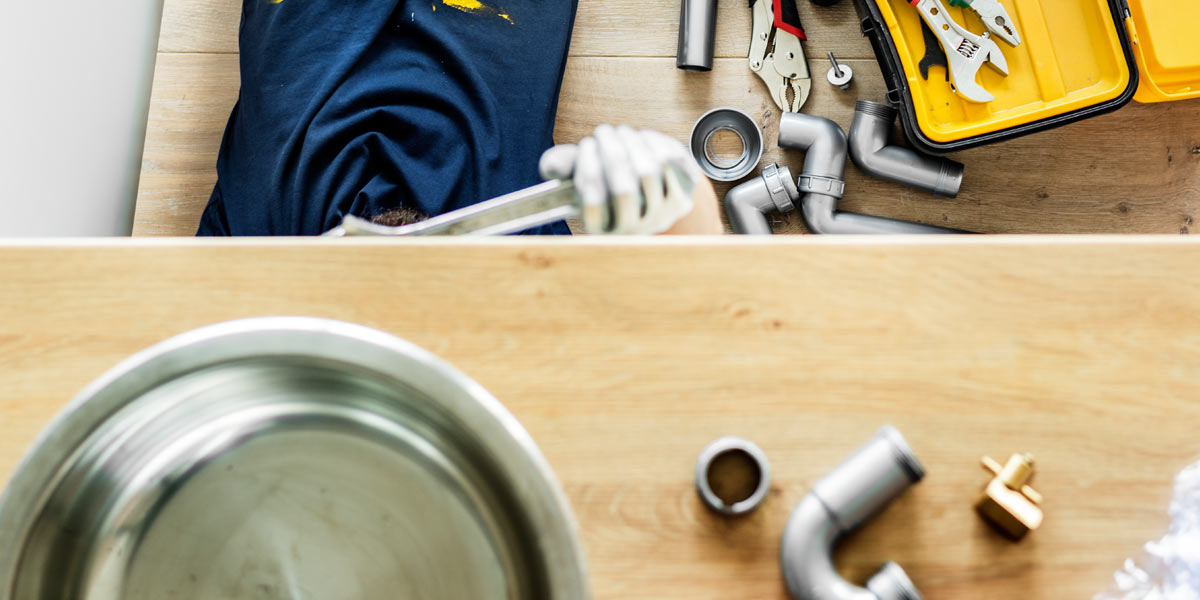



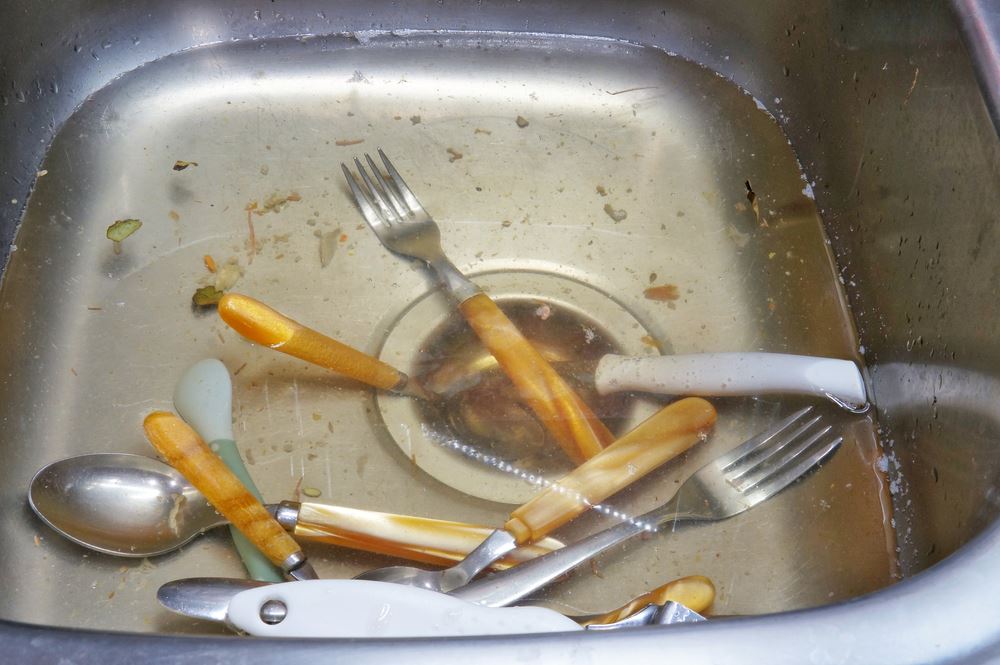


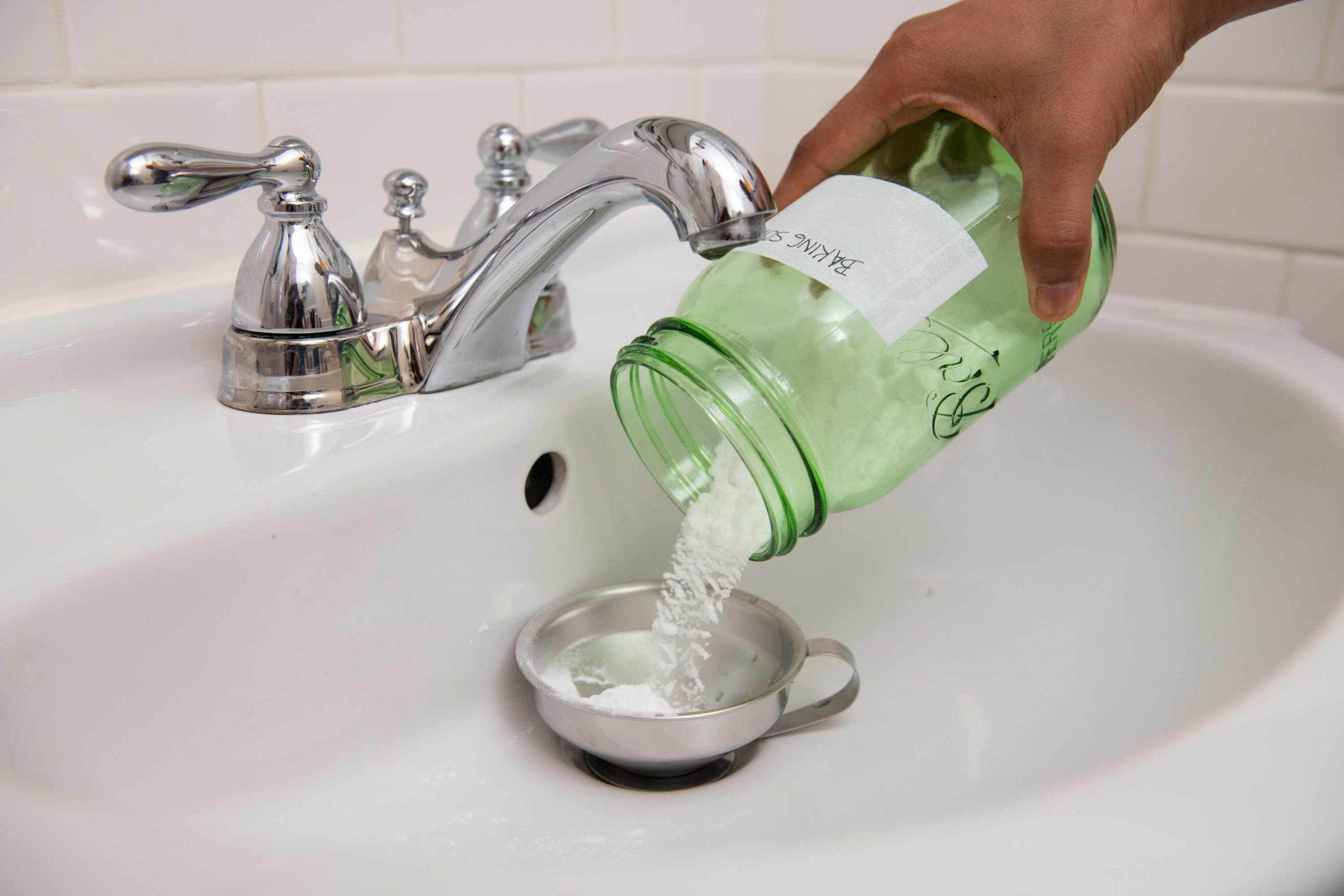


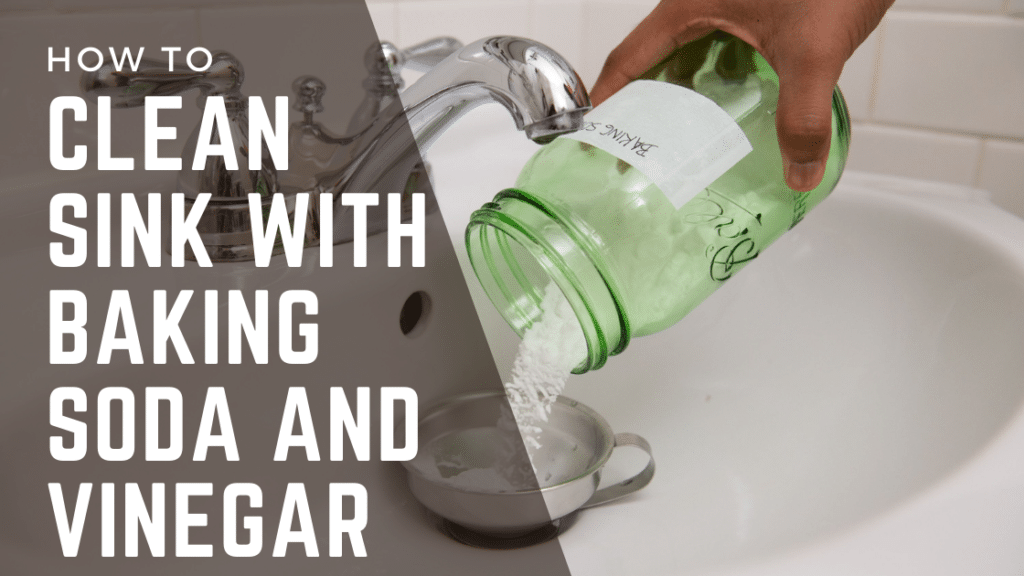


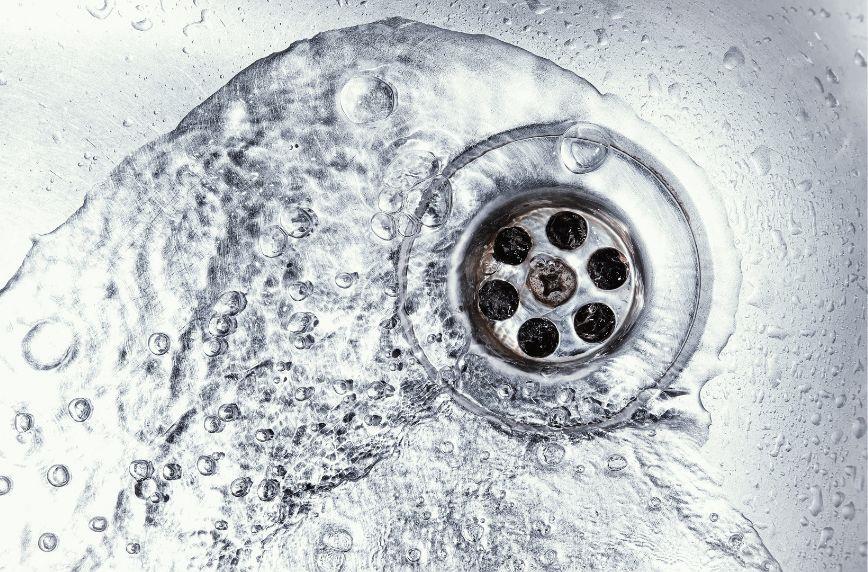






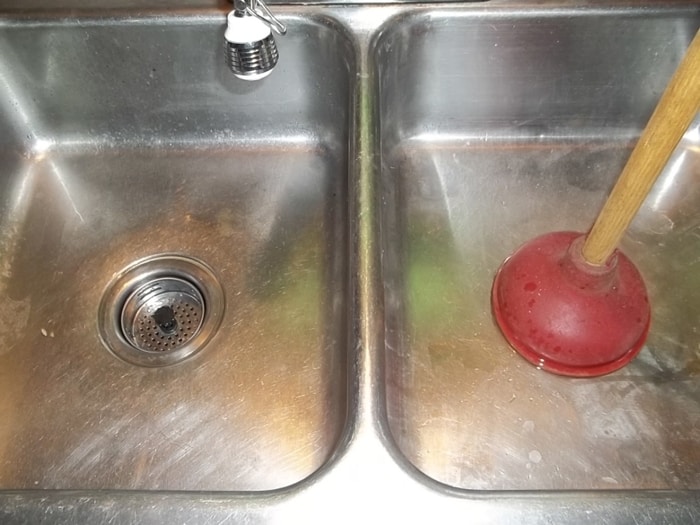
/woman-wearing-yellow-washing-up-gloves-to-unblock-sink-using-plunger-close-up-131987463-5887cfc03df78c2ccd92ec9e.jpg)
:max_bytes(150000):strip_icc()/unclogging-a-toilet-with-a-plunger-2719030_final_horizontal_10_18-d33deec2a8084e289a5427c6745a0d32.png)

